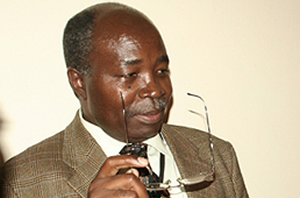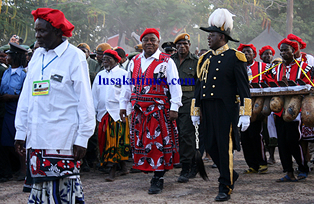Luapula province local government officer Alfred Nyambose and Mansa Municipal council town clerk Bwanga Kapumpa on Tuesday openly differed over the enforcement of the bus station and market boards Act of 2007.
This was during a two-day sensitisation workshop on decentralisation for seven local authorities in Luapula province that closed yesterday.
The two local government officials argued over the law after it was learnt that Mansa Municipal council has not formed the market and bus station boards as provided by the local government Act.
It was also learnt that the council had also continued to use associations not prescribed by the law as its agent for revenue collection at markets and bus stations.
The town clerk, Mr Kapumpa, said the market and bus station Act was a very bad law and Mansa municipal council had found it difficult to enforce it.
He alleged that the formulation of the law was just intended to outlaw Zambia National Marketeers Association (ZANAMA) with a view of removing Elvis Nkandu from Chisokone market in Kitwe.
He said this is why the law says that no any other association is supposed to operate in markets and instead the market boards were prescribed by the Act.
However, he said such laws that are known as the law of the mischief are bad and cannot be easily enforced as it is the case with market and bus station boards Act.
Mr Kapumpa said Mansa municipal council found it very difficult not to work with ZANAMA because it is an association that draws its membership from among the marketeers.
“In law there is what is called mischief law. This is just intended to deal with certain characters just as is the case of the Market and Bus station Act. It was meant to get rid of Elvis Nkandu from Chisokone market, but councils have failed to enforce it,” Mr Kapumpa said.
He said the council was even using ZANAMA to collect its levies, and had signed a memorandum of understanding that allows the association to retain 60 percent of the revenue for market development projects.
However, the PLGO, Mr Nyambose said the use of unauthorised associations to collect levy was wrong.
He directed all local authorities in the province to follow the Market and Bus stations Act and enforce it forthwith.
ZANIS




